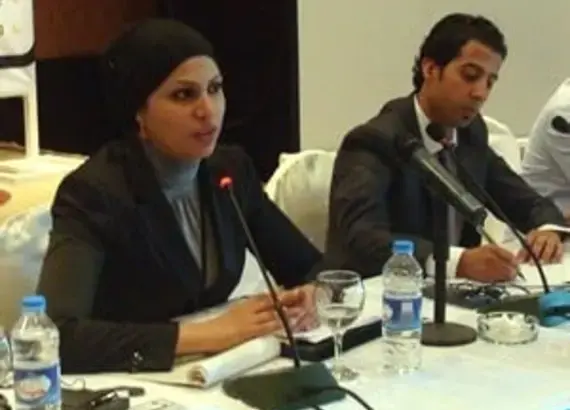
Success Story
Iraqi National Youth Caucus Works to Turn Youth Priority Issues into Policy Changes
As Iraqis work to create a new government, a group of young people is working to perfect the civic advocacy skills they need to influence how policy is made.
Members of Iraq's National Youth Caucus (NYC) came together recently to discuss their strategies for ongoing advocacy campaigns for improving high school and college education and combating the high rate of youth unemployment.
Over the past year, members of the NYC—an informal network of 70 political activists from around the country—have focused on how to integrate young people into Iraq's political life with the goal of having an influence on policy. They met in Erbil in August for a three-day conference, where they also discussed expanding their activities to advocate for a freedom of information law.
Learning From Romanian Civil Society
Five women and 10 men from Iraq's National Youth Caucus (NYC) traveled to Romania in June to learn about the role of civil society in a young democracy. In meetings with Romanian parliamentarians, political parties, civil society organizations and youth activists, participants learned that access to information and political decision-making are key elements in activating the role of youth in political life.
Caucus members were impressed by the ease with which civil society representatives in Romania communicate with decision-makers, the high level of trust between the government and civil society organizations (CSOs) and the efficacy of CSOs that build coalitions and have broad citizen support. Representatives of both CSOs and the Romanian government emphasized that citizens and CSOs must take the initiative to claim their rights and help advance the democratic process; they cannot wait for the government to act first.
Study mission participants were exposed to many new advocacy strategies and campaign techniques. One caucus member from Kirkuk noted, "Our campaigns will benefit from the ideas that worked successfully for Romanians: using blogs, documentary films, photography, theater, media outlets, SMS, Facebook, Internet, websites and radio interviews between young people and officials; collecting information about politicians so we know where they stand; and gaining legitimacy and financial support from international NGOs."
Since returning from Romania, NYC members have defined their expectations for progress in Iraq and expressed a desire to assert themselves as civic leaders and future political leaders. In the words of one caucus member from Najaf, "We are the future of Iraq—many of us will be tomorrow's parliamentarians and ministers. I intend to be one of them."
Caucus members have focused specifically on how to get results through political activism. In their communities, the young people conducted surveys about citizens' priorities to inform their advocacy campaigns, and they will use that information to make their case in meetings with members of parliament, government ministers and provincial council members. NDI has been working with the group since 2007 to strengthen caucus members' skills in leadership, community outreach, negotiation, political communications and conflict management.
The conference provided an opportunity for the caucus members to share advocacy activities from their respective provinces and finalize plans for rallying citizen support to persuade Iraqi decision-makers to enact solutions identified by the caucus.
"The responsibility of civil society is to enable society to transform and to encourage citizens to participate in community building," said a caucus member from Muthanna, emphasizing the caucus' goals of transforming society and building stronger communities.
As part of their efforts, the NYC members incorporated lessons learned during a study mission to Romania undertaken in June. They adopted several strategies borrowed from their Romanian counterparts, such as inviting young people to speak out through nationwide interactive blogging and developing regional advocacy campaigns with other youth networks. In particular, members want to raise awareness about the need for freedom of information legislation, which was pivotal to many civil society successes in Romania. "This legislation can be used to prevent corruption. If citizens have a right to public information, including public expenditures, civil society can demand accountability," said one NYC member.
Related:
Pictured above: Panelists at the NYC conference lead a discussion on the progress of their advocacy campaigns and how their plans will change in light of the ideas gleaned from meetings in Romania.
Published on October 14, 2010



